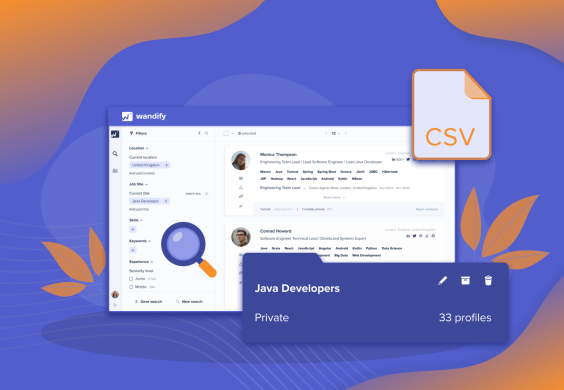You send the perfect job offer. The candidate seems excited. Then… silence.
Sound familiar? You’re not alone.
Candidate ghosting is now a major headache for recruiters everywhere. And it’s getting worse, not better.
The numbers don’t lie
Here’s what’s really happening out there:
44% of candidates now admit to ghosting employers, while 53% report being ghosted by employers according to CareerPlug’s 2024 Candidate Experience Report.
Even more shocking? 61% of job seekers have been ghosted after a job interview, up nine percentage points since early 2024 (Greenhouse’s State of Job Hunting Report).
Meanwhile, 84% of job seekers have ghosted employers, and 39 percent of businesses report a rise in ghosting over the past two years according to Broadleaf Results research.
These aren’t just numbers. They represent real hiring pain. Lost time. Frustrated hiring managers. Empty desks that should be filled.
Why do good candidates just… Vanish?
After years in recruitment, I’ve seen patterns emerge. When I actually ask ghosted candidates what happened, five reasons come up again and again.
First, money. 29 percent of candidates ghost when the offered salary doesn’t meet their expectations. If you wait until the final offer to discuss salary, you’re setting yourself up for disappointment. Smart candidates research salaries. They know what they’re worth. A lowball offer feels insulting.
Second, competition. 28% of job seekers vanish because they receive more attractive offers elsewhere. The job market is competitive. While you’re scheduling the third round of interviews, another company made an offer. Speed matters.
Third, mismatched expectations. 27% of candidates ghost when the role’s responsibilities don’t match their initial understanding. Vague job descriptions create problems. If a “marketing coordinator” role turns out to be cold calling, candidates will run.
Fourth, slow processes. 67% of candidates drop out of a hiring process that takes longer than two weeks. Two weeks is the limit. After that, you’re competing with faster companies who’ve already made decisions.
Finally, poor communication. 34% feel ghosted after just one week and 52% of U.S. job seekers reported being ghosted after an interview. When candidates don’t hear from you for weeks, they assume you’re not interested. So they focus on companies that actually talk to them.
What ghosting really costs you
Let’s talk about money. Each ghosted candidate represents:
- Wasted screening time
- Lost interview hours
- Delayed project starts
- Team frustration
But the hidden cost? Your reputation.
55% of candidates who feel mistreated during the hiring process will share their negative experience with others, hurting your ability to attract future talent.
One bad experience can reach hundreds of people through social media. In recruitment, your reputation is everything.
How to stop the ghosting
Here’s what actually works based on my experience with real clients. I’ve tested these methods and seen immediate improvements.
Speed up your process first. Cut the unnecessary steps. Most roles don’t need five interview rounds. Try this simple approach: phone screen (30 minutes), first interview (1 hour), final interview (1 hour), then make a decision within 48 hours. That’s it.
Talk money early. Ask about salary expectations in the first call. Always. Don’t waste everyone’s time if the budget doesn’t match. It’s better to know upfront than lose a great candidate at the offer stage.
Communicate like a human being. Stop sending robotic emails. Write like you’re talking to a friend. Instead of “We are currently reviewing your application and will provide an update in due course,” try “Hi Sarah, I’m reviewing your interview notes with the team. I’ll have an update for you by Friday afternoon.” See the difference?
Set clear expectations from day one. Tell candidates exactly what to expect: how many interview rounds, who they’ll meet, timeline for decisions, and next steps. No surprises. No confusion.
Follow up religiously. Even if there’s no news, check in. A simple “Still working on this, will update you Monday” keeps candidates engaged. Remember:

The AI factor
Here’s something interesting: 3 in 10 job seekers have used ChatGPT to apply for a job and those job seekers who used ChatGPT were 5x more likely to hear back from an employer according to Clarify Capital research.
AI has a huge impact. But don’t let technology replace human connection. Candidates still want to talk to real people.
Currently, 51% of companies use AI in their hiring processes, a number expected to rise to 68% by the end of 2025. Use it to speed things up, not to remove the human touch.
When ghosting happens anyway
Sometimes candidates will still disappear despite your best efforts. Here’s the reality: send one follow-up message, make it easy to respond with a yes/no question, don’t take it personally, and keep them in your database for future roles. Today’s ghost might be tomorrow’s perfect hire.
Watch for these warning signs that often predict ghosting: candidates taking longer to respond to emails, enthusiasm dropping during conversations, fewer questions about the role, and delayed responses to interview scheduling. Spot these early? Have an honest conversation. Ask what’s changed.
Truth about ghost jobs
Here’s an uncomfortable truth that needs addressing: companies ghost candidates too, and it’s getting worse. 50% of hiring managers said they posted ghost jobs because the “company is always open to new people.” Additionally, 35% said it was “in case an irresistible candidate applies” according to Clarify Capital research.
This practice destroys trust. Over 90% of job seekers believe ghost jobs inflate perceptions of a healthy job market. Don’t be part of the problem. Only post jobs you actually plan to fill. Your reputation depends on it.
Building anti-ghost culture
The best companies do these things:
- Respect candidate time – Start and end interviews on time
- Be transparent – Share real salary ranges and job challenges
- Move fast – Make decisions quickly
- Stay human – Personal touches matter
- Follow through – Do what you say you’ll do
Measuring success
Track these metrics:
- Offer acceptance rate
- Time from offer to acceptance
- Candidate feedback scores
- Interview-to-hire ratio
If ghosting goes down, these numbers improve.
Quick wins you can implement today
- Text candidates after interviews – “Thanks for your time today. I’ll follow up tomorrow with next steps.”
- Set calendar reminders – Never let a candidate wait more than a week without contact.
- Create email templates – But personalize them for each candidate.
- Ask for feedback – “What could we improve about our hiring process?”
- Speed up decisions – Can you decide in 3 days instead of 7?
Final thoughts
Candidate ghosting isn’t going away. But you can minimize it.
Focus on:
- Fast, fair processes
- Clear communication
- Competitive offers
- Human connections
Remember: every candidate is someone’s top choice somewhere else. Treat them that way.
The goal isn’t just to prevent ghosting. It’s to create such a good experience that candidates choose you over everyone else.
And when that happens? No more ghosts. Just great hires.


